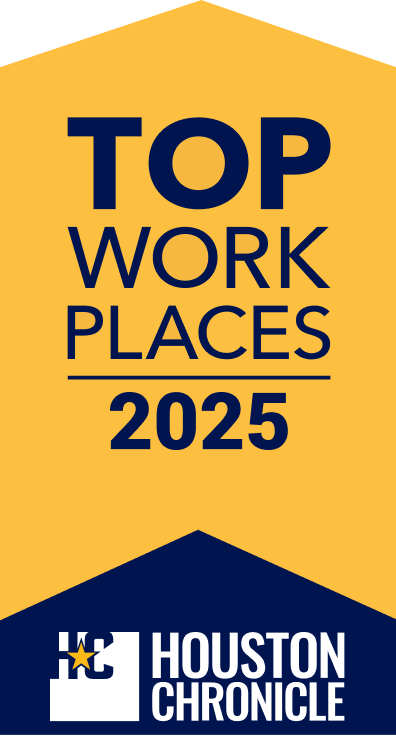Have you ever dismissed adult forgetfulness as a natural part of aging? Popular beliefs about how our brains work often contradict the science behind them. It’s time to separate fact from fiction and reveal what science tells us about some of the most persistent brain myths.
Myth: Significant memory loss is a part of normal aging.

Many people dismiss memory problems in older adults as simply getting older. Kendra M. Anderson, PhD, a neuropsychologist with UTHealth Houston Neurosciences Neurology – Texas Medical Center, said this explanation is not entirely true and significant memory issues should never be dismissed. She said getting lost, repeating the same questions, or forgetting the names of close family members is not a normal sign of aging.
“Processing speed slows down as we age. So, maybe older adults are slower to remember things, like a name on the tip of your tongue. That’s common, but getting lost while driving in a familiar area, for example, is not consistent with normal aging,” said Anderson, an assistant professor of neurology at McGovern Medical School at UTHealth Houston.
What makes this myth so potent is that it’s partially true. Anderson said certain age-related memory loss is typical, especially for those more than 65 years old. She said it can be challenging for people to differentiate normal forgetfulness from the very early stages of cognitive decline. Being proactive about brain health is important.
Myth: We only use 10% of our brains.
This is one of the most widespread misconceptions about brain function. Anderson said the origin of this myth might be based on a misunderstanding or misinterpretation of a scientist’s quote about the brain’s composition. Neurons, which comprise about 10% of our brain, communicate with other cells to enable us to do things. The other 90% of our brain is glial cells, the maintenance crew that supports all neuron functions. While our knowledge is growing, scientists know more about the functions of neurons than the glial cells.
“The science shows that we use our entire brain for all our tasks,” Anderson said. “Even when we’re sleeping, our brain is active. Our brain uses 20% of the body’s energy to accomplish everything it needs to do.”
Myth: Left brain/right brain are distinct personality types.
Many people identify as either “left-brained” (logical) or “right-brained” (creative), but this oversimplification doesn’t reflect how our brains actually work. The brain functions as an integrated and interconnected system.
“That’s more of a colloquial term,” Anderson said. “Typically, the right hemisphere is associated with visuospatial abilities and creativity, while language is heavily supported by the left side. But both hemispheres support all functions, and we use our entire brain for different types of things.”
Myth: Memory works like a video recording.
Many people believe memories are stored in the brain as perfect recordings that can be played back exactly as events occurred, but the reality is quite different.
“As we remember details about our past, we’re recreating that memory each time we bring it back to the forefront of our mind,” Anderson said.
Memory formation is a complex process. Anderson said that when something happens, the memory goes through a process of integration and consolidation until it transfers to our long-term memory. Each time we remember and bring it to the forefront, we are reconstructing that memory based on the original memory, other associated memories, context, and other experiences. This is why memories can be changed or updated.
Myth: Brain damage is always permanent.
When it comes to brain injuries and recovery, the outcome is more complex than many people realize. It depends on many factors, including preinjury functioning and brain damage severity. Age is also an important factor in recovery.
“Once an injury has occurred, the brain can adapt and learn new pathways to do those functions through a process called neuroplasticity,” Anderson said.
For example, a child who has part of the brain removed due to treatment-resistant epilepsy can still perform certain functions that the removed part of the brain would perform due to plasticity. This is especially true if the brain forms a new way of doing that function. For older adults, neuroplasticity is still possible, but is slower compared to children or young adults. Rehabilitation helps with neuroplasticity but may be compromised in brain disorders like Alzheimer’s disease.
Protecting your brain health
Some factors affecting brain health are within our control. Adapting our lifestyles can protect against or minimize our risk for diseases that impact our brains later in life.
Physical activity for brain health:
Anderson cited recent research showing the power of physical activity. The study followed participants for 30 years and showed that even 30 minutes of daily exercise decreased the risk of dementia by up to 40%.
Sleep for the brain:
Sleep is another crucial component of brain health. When you sleep, your brain’s cleaning system, or glymphatic system, kicks into high gear. Cerebrospinal fluid flows through these channels, washing away harmful substances and other waste that builds up during your waking hours.
“Sleep is very important,” Anderson said. “The glymphatic system helps clear out toxins we’re exposed to when we are awake, and that system is much more efficient when we sleep. Poor sleep can disrupt the functioning of the glymphatic system.”
Research suggests that when this system doesn’t work properly, it may contribute to conditions like Alzheimer’s disease, where harmful proteins accumulate in the brain.
When to seek help
Anderson urges people to take brain health as seriously as they would any other aspect of their health. If there is a concern about your memory, don’t automatically attribute it to aging.
“We need to check on our brain health just like we would check our heart or stomach health,” she said. “I’m hoping more people will take the time to appreciate that.”
By understanding these myths and the science behind them, we can make better decisions about our brain health and lifestyle as we age.



